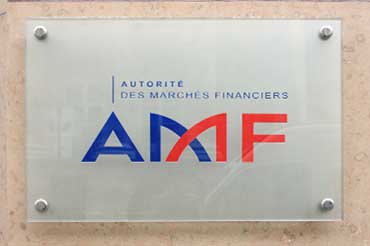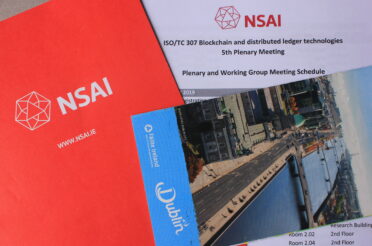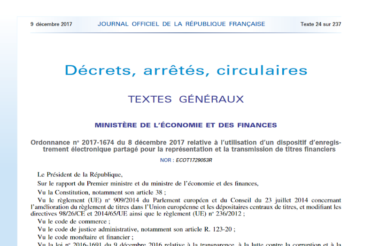In a text published in French and, to be noted, in English, the French Treasury launched on March 24 a public consultation on the topic of blockchain on its website. This consultation is particularly interested in the application of this new technology to the financial securities of unlisted companies. France's ambition is once again to promote the digital economy by attracting fintechs to the country.
We can in turn wonder about the purpose of this consultation on the eve of the presidential elections, its content and its scope?
What is the purpose of this consultation on the eve of the presidential elections?
While many ministries have been working in slow motion for several months in anticipation of the presidential elections and we thought that the file had been buried by the Government, the Treasury Department publishes a "Public consultation on the draft legislative and regulatory reforms relating to blockchain".
In order to understand the reason for this publication, it is worth recalling the context in which it takes place and the role of the Treasury Department.
The Treasury Department is, let's remember, a different administration of the Ministry of Economy and Finance than the one that deals with our taxes. It defines itself as the super advisor of the ministries. To this end, it conducts analyses and makes recommendations. It also defines a certain number of rules applicable to insurance, banking and participative financing.
For its part, the government has undertaken to regulate blockchain on an experimental basis within the framework of ordinances and application decrees, given the complexity of this technology.
A first step has been taken with the publication of the April 28, 2016 ordinance on vouchers, which allows minibonds to be registered in the blockchain. This ordinance defines for the first time in French law the term blockchain as a "shared electronic recording device."
However, this step has a taste of unfinished business since the decree that was supposed to set the conditions, including security, for the use of blockchain has still not been published, more than six months after the ordinance came into force!!! This leaves, to this day, a dead letter for the provisions applicable to minibonds on the blockchain.
A second step has been opened by the Government in the framework of the Law n° 2016-1691 of December 9, 2016 on transparency, the fight against corruption and the modernization of economic life (also known as the "Sapin II Law"). The Government has tabled an amendment in order to obtain authorization to take by ordinance, within eighteen months from the date of promulgation of the law, the measures necessary to:
"adapt the law applicable to financial securities and securities to permit the representation and transmission, by means of a shared electronic recording device, of financial securities that are not admitted to the operations of a central securities depository or delivered into a financial instruments settlement and delivery system."
At the request of the opposition (in the person of Mrs. Laure de la Raudière), the Government agreed to reduce the time limit from 18 months to 12 months. As the Sapin II law was published on December 9, 2016, the Government has until December 9, 2017 to publish an ordinance on the experimentation of unlisted company financial securities on the Blockchain.
This consultation, based on Article 120 of the Sapin II Law, is therefore intended to prepare the draft of the future ordinance and this regardless of the majority of the next Government.
Presentation of the consultation
For those who are not familiar with legal texts or the financial field, this nine-page consultation with 21 questions (question 19 being used by mistake for two different subjects) may sometimes seem rather difficult.
As the deadlines for responses are relatively short (since those interested must respond by 19 May 2017 at the following address: marketinfrastructures@dgtresor.gouv.fr), here is a brief presentation of the four main themes of this consultation:
- The first theme is surprisingly about the "Need or not to legislate" regarding blockchain. The Treasury Department is asking interested parties whether the current legislative and regulatory framework is sufficient to meet their expectations and whether they have identified any areas of legal uncertainty;
- The second group of questions relates to the specific case of the regulation of financial securities covered by Article 120 of the Sapin II law and addresses the specific legislative changes required, the related legal impacts relating to the notions of ownership, authentic (or notarized) deed and opposition to third parties, as well as the open or closed architecture of distributed ledger technology ;
- The third theme includes more general legal issues related to topics such as "Governance and liability", "Legal security", "Confidentiality, transparency, data protection and the right to be forgotten", "Anti-money laundering and combating the financing of terrorism - Know Your Customer (KYC) obligations", "Cyber security", "Interoperability";
- Finally, the fourth and last topic addressed by this consultation is whether or not it would be useful to establish a single decree for the application of the "minibons" and "blockchain" ordinances.
What to think of this consultation?
While the greatest uncertainty reigns in the country concerning the next presidential majority, the consultation of the General Directorate of the Treasury on the future blockchain ordinance could be perplexing as to its usefulness.
However, this would be forgetting the role of this administration as an advisor to the ministries that will be part of the future government. The General Directorate of the Treasury has the particularity of having half of its staff working abroad in French embassies or international organizations. It is in this context that it has been following the economic and legal aspects of crypto-currencies and blockchains around the world for several years. Several of its publications deal with the treatment of bitcoin in India or in the United States, or with the use of blockchain by a particular international economic operator. This Directorate is therefore well informed of the issues related to blockchains, which is a positive element to advise the future government.
However, we can regret several points:
- this consultation leaves the feeling that the current Government has rushed to propose ordinances related to blockchain without having really analyzed beforehand the need or not to legislate on the matter;
- the Direction Générale du Trésor refers in its consultation and in the vast majority of cases not, as one might have expected, to the term "blockchain" or its translation into French law of "shared electronic recording device" but to the expression "distributed ledger technology" and more specifically to its abbreviation "DLT". It should be recognized that DLT is the term used by the European Securities and Markets Authority (ESMA) in its two 2015 and 2016 consultations on blockchain. However, this expression is confusing because it should be noted that not all distributed registries are blockchains and do not have the much sought-after qualities of the latter.
- The French Treasury's General Directorate also shows a strong preference for the use of closed DLTs for the registration of financial securities of unlisted companies. It even mentions the idea of approving the persons responsible for a DLT, but recognizes at the same time that this would be tantamount to centralizing a system that is intended to function in a decentralized manner...!
- the last question of the consultation concerning the drafting of a single decree for the "minibons" and "Blockchain" ordinances, suggests that the publication of the decree on minibons will be delayed for an indefinite period of time. The latter issue is a reminder of the extreme difficulty of regulating a technology as young and changing as blockchain.
Nevertheless, this consultation also has the positive points:
- It has the merit to exist and to allow the largest number of people in France and abroad to express themselves on the subject;
- It raises interesting questions related to the responsibility of the actors of the sector in case of litigation (which is not without reminding the episode of the Ethereum DAO), to the applicable law with in particular the problem of the extraterritorial application of other laws from other States (Let's remember that the Internet, far from being a space without law, is in reality a legal mille-feuille where the States of the whole world can declare their applicable law as soon as one of their nationals has left)
Finally, we have recently noticed a bulimia of ordinances and decrees issued by the Government in a wide variety of legal fields. At the same time, there have been a number of delays in the publication of these texts. Therefore, one can legitimately wonder what will happen to the projects concerning blockchain, in the face of all these pending texts, with the new Government?
Moreover, after its consultations, ESMA decided that there was no reason not to legislate in the current state. What is France going to do if the majority of the concerned parties answer to this consultation that there is no need to legislate?
Sources : dailymotion.com – tresor.economie.gouv.fr
This article was first published on: www.bitcoin.fr






